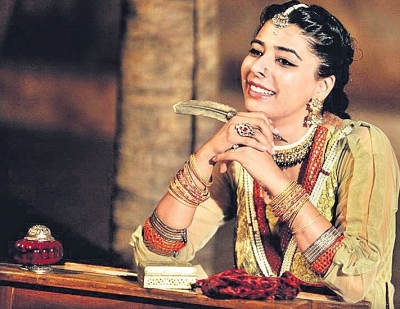
Mah Laqa Bai of Hyderabad Deccan wore many hats during her lifetime. She was an archer and an expert javelin thrower, and accompanied the Nizam in wars dressed in male attire. Valued for her intellect, she was consulted in court about political affairs. She travelled with a parade of 500 soldiers when she met officials. As per her wish, after her death, her wealth, including jewellery and land, was donated to homeless women.
Born to Raj Kunwar and Bahadur Khan, Chanda Bibi (her birth name) was adopted by Raj Kunwar’s sister Mehtaab Mah, a courtesan. She grew up being exposed to literature and culture. By the time she was a teenager, she was an expert at horse riding and archery. A talented musician and poet, she also mastered Deccani kathak.
She was a courtesan in the Nazim’s court and held a position of respect and power. For her contributions as a warrior she was rewarded pieces of land from the Nizam from time to time. She was bestowed with the title ‘Mah Laqa Bai’ or ‘moon-faced madame’. During her time as courtesan, she made considerable wealth, which she used to build libraries, sponsor artists and poets and also commission the Mahanama (history of the Deccan).
A staunch feminist, Mah Laqa also built a cultural centre where she educated and trained young girls. He had a walled compound built to hold mushairas (poetic symposiums) every week. It was here that she was buried after her death in 1824.
There were many courtesan during the Deccan Nizam period but none could parallel the strength and authority of Mah Laqa Bai. She was among the first women whose poems were published posthumously – the ‘Gulzar-e-Mahlaqa” is a collection of Urdu ghazals.
Mah Laqa Bai’s works were hard hitting and articulate here’s an example:
Who has the power to praise God, should a tongue try to speak
It’s as if this world were nothing but silent and weak
To tell Muhammad’s virtue, who needs a poet’s glittering gathering?
Keep the tongue from babbling, like a candle’s flowing wick.
Maha Laqa Bai gained ‘Omrah’ status I the Nizam’s court, which is rarely provided to women. As an Omrah, she could attend the Nizam’s durbar and advise him on state policies.
Picture Credit : Google
